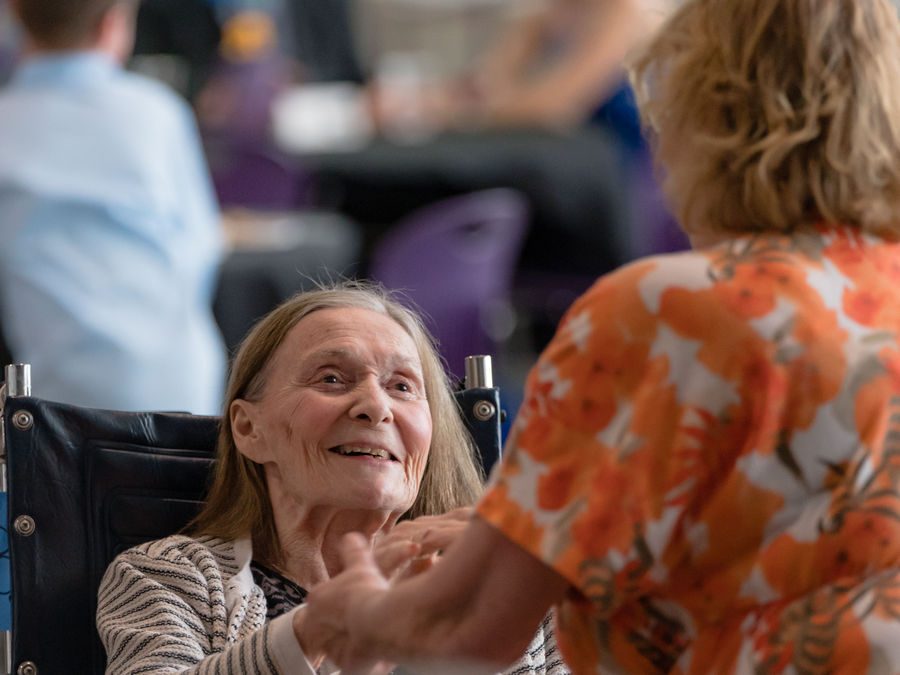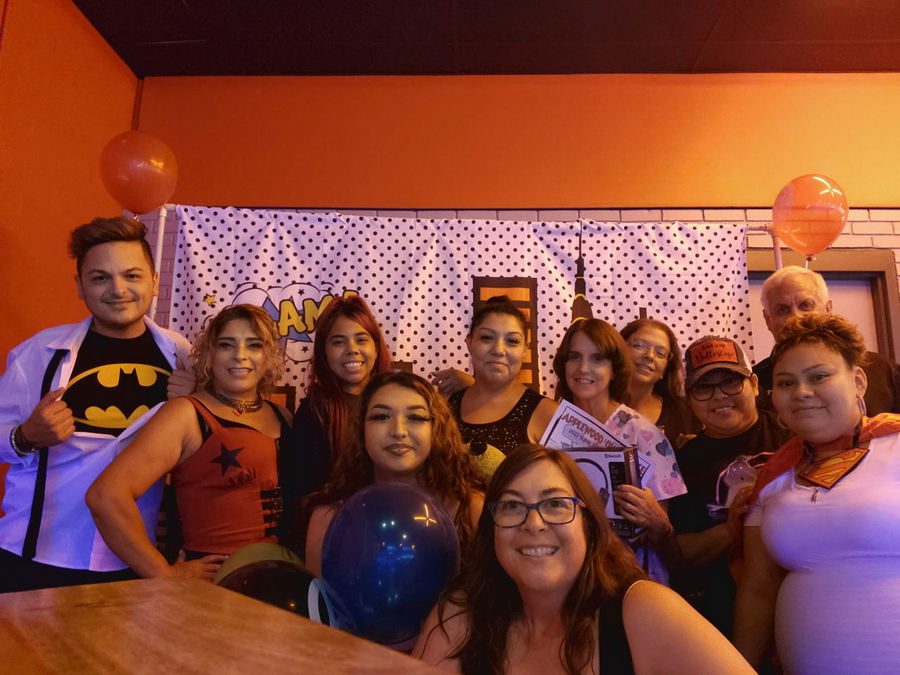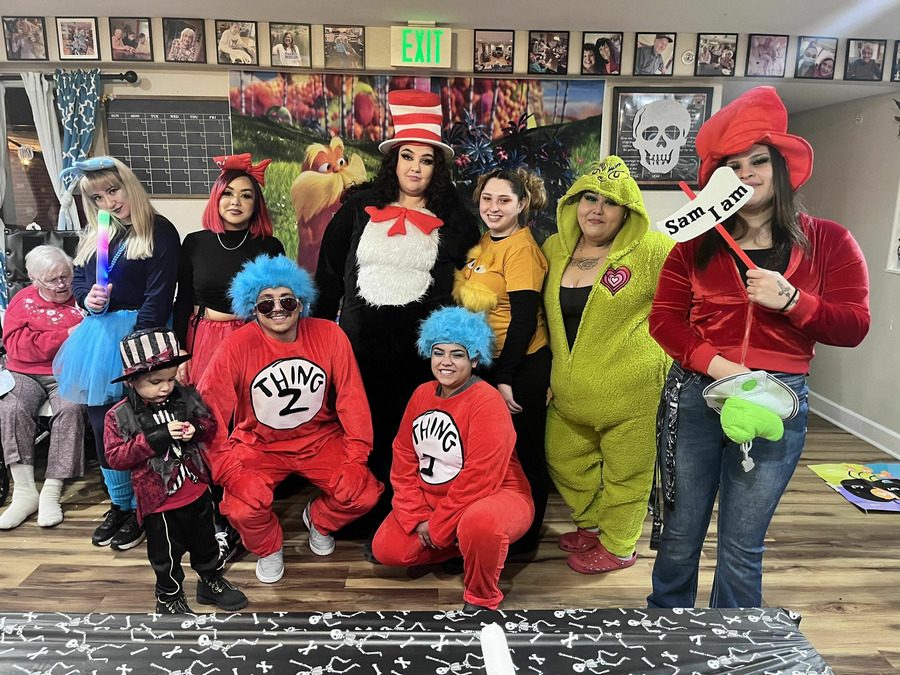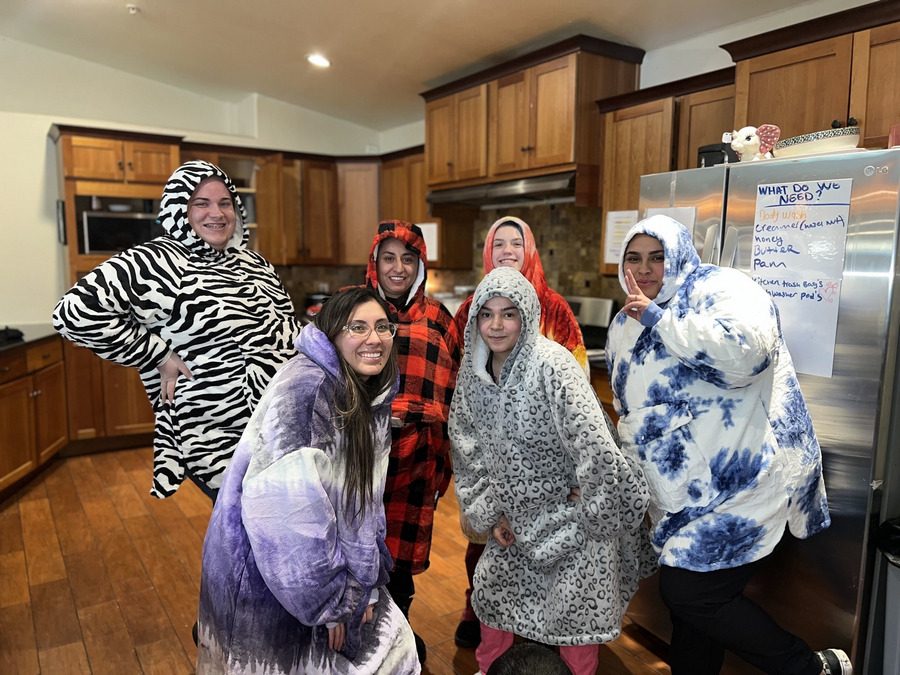


Dementia caregivers are often seen, but seldom get the recognition they deserve.
Inside one of our memory care homes, a resident was waiting. For someone. For something. She didn’t know anymore. But her hands remained folded in her lap, her gaze fixed on the door as if the world might make sense again at any moment.
She looked up with a distant gaze. “Do you know where he is?”
The caregiver lowered herself until they were eye to eye, her hand a whisper against frail skin. “He loved you very much,” she said, the kind of assurance that had become muscle memory.
The resident continued to breathe. For a few seconds, the words seemed to reach her. Then they slipped away.
For an instant, the words seemed to land somewhere familiar. The woman’s breath steadied. She let her shoulders relax, a tiny surrender.
The clarity faded, dissolving like breath on a glass. Her hands tensed, her gaze shifting, reaching for something already out of sight.
This is memory care—a place where love must be offered freely, without the hope of recognition, and where kindness is a habit.
Caregivers are witnesses and anchors, holding stories that slip through the grasp of those who once owned them.

Caring for someone with dementia asks for a kind of patience that is neither learned nor earned, only endured.
This work calls for tenderness without expectation, the quiet stamina to live inside moments that vanish as soon as they arrive.
A caregiver’s day is a rhythm of repetition—the same question met with the same answer, the same hands guided down the same familiar hallways, all while knowing that the cycle will begin again.
Sometimes, the pieces come together again for reasons no one can predict. A melody hummed under their breath, the scent of coffee at dawn—something stirs, and for one fragile moment, they are here.
They are whole. And then, just as suddenly, the recognition fades.
This work is exhausting in a way few understand. This kind of care is not about fixing, not about saving. It is about being there, even when “there” is no longer defined.
To care for someone who has forgotten their reflection is to love in the absence of acknowledgment.
And yet, the caregivers continue—tending to memories that no longer belong to anyone, holding onto grief that is never named aloud.

With a steady gaze and an open heart, Wine, Women, and Dementia lays bare the quiet heroism of those who love without the promise of being remembered.
It does not soften the edges of what it means to be a caregiver—whether in a professional setting or within the walls of a family home.
It lingers in the late-night exhaustion, the guilt, the quiet, accumulating grief of watching someone disappear in slow motion. For family caregivers, the burden is different, yet painfully familiar.
The film reveals the quiet heartbreak of a daughter who has become a mother to her own mother and a husband who is now little more than a stranger in his wife’s mind.
Their lives are reshaped, dictated by an illness that does not make room for sentimentality. This struggle, this relentless devotion, is not exclusive to families.
In memory care homes like Applewood Our House, professional caregivers experience the same grief in cycles—mourning the loss of someone still alive and adjusting to the absence of someone who never truly said goodbye.
This work has an unspoken camaraderie, a shared understanding that while memory fades, care remains.

Unlike family members, professional caregivers do not share a past with the people they care for.
They were not there for the firsts—the weddings, the children, the inside jokes that once defined a life. And yet, they intimately know these people.
They remember how a resident likes their coffee, the song that brings them back for a moment, and the details that no longer reside in the resident’s mind.
It is strange to be the keeper of someone else’s vanishing world. Caregivers give comfort knowing it may never be acknowledged. The work pulls at the body, drains the heart, yet still, they return.
Sometimes, a resident lashes out, frightened by a reality they can no longer hold onto. Days when the weight of so many goodbyes feels unbearable. But still, they show up.
Caregivers hum lullabies to those who once sang to them, stroke weathered fingers, and offer comfort that residents won’t recall but is needed all the same.
A caregiver once told me, “People ask if it’s hard. I tell them—of course it is. But what would be harder is walking away.”
But it is more than that. This work is not just a job, not just an obligation.
It is a commitment to ensuring that dignity remains even as memory fades.

There are no grand breakthroughs in dementia care. There are no definitive cures, no triumphant recoveries.
There is only the quiet, patient, necessary work of ensuring someone is not just housed but seen. And yet, this labor remains largely invisible.
Caregivers do not seek recognition, but they deserve it. They deserve more than the bare minimum and the whispered gratitude of families too exhausted to say more.
They deserve understanding that reflects the depth of what they give and resources that acknowledge the emotional toll of their work.
Films like Wine, Women, and Dementia bring these stories to light, but awareness is insufficient.
The conversations must lead somewhere—toward action and policies that honor this work’s weight.

For dementia caregivers, whether within a facility or the walls of their home: You are seen. You are the ones who stay when memory does not.
The hands that steady, the voices that calm, the presence that lingers when all else fades. In a world where so much is forgotten, you remain.
If you are interested in starting a career as a memory care caregiver, contact Applewood Our House.